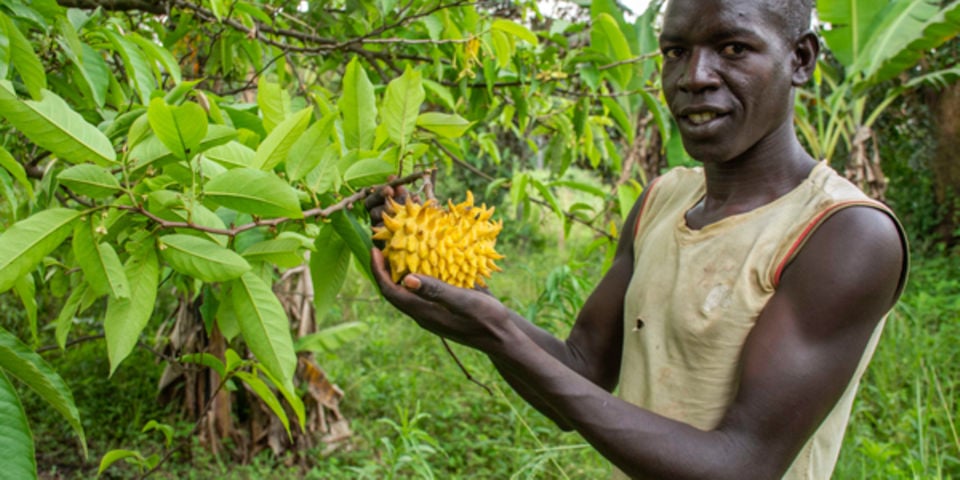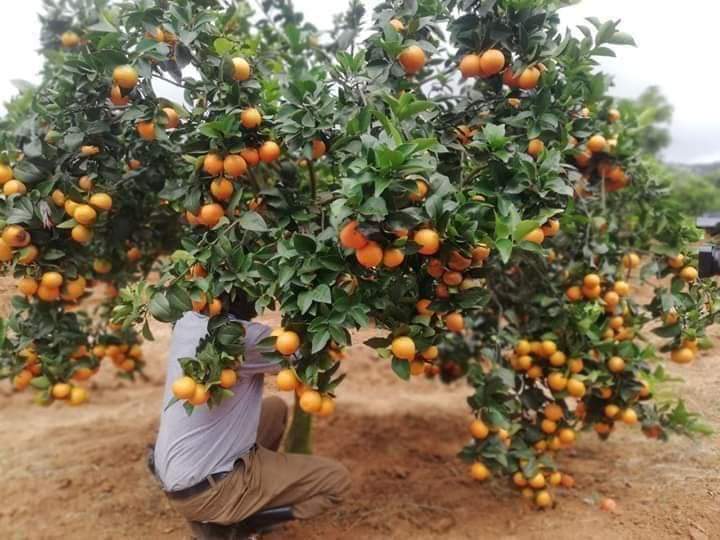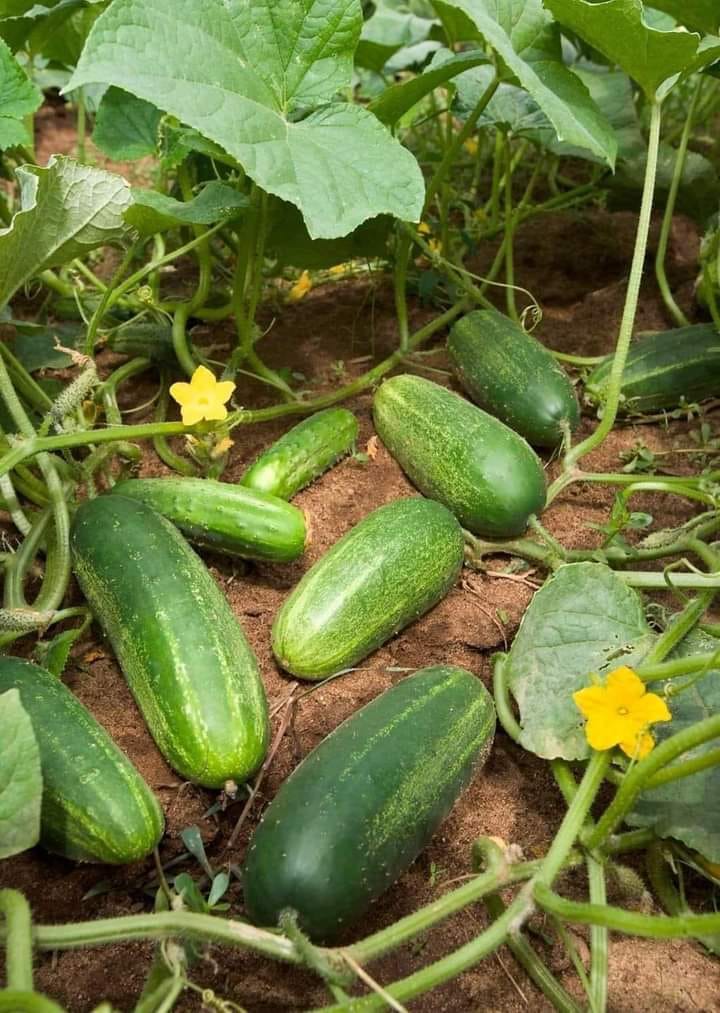Exotic trees are rarely grown among fruit tree growers in Uganda. Instead, fruits such as mangoes, jackfruit and pawpaw are the most commonly grown especially in the central region.
Soren Jegindoe, a horticulturist, identified this gap in the fruit market and decided to introduce some rare tree species.
In 2002, after relocating to Kampala, where he worked as a manager at an IT firm, the Danish native grew an overwhelming interest in fruit trees.
Dressed in a blue shirt and matching trouser, Soren welcomes Seeds of Gold to his Tropical Fruit Farm in Buwagga, Gayaza.
How he started
He recalls a lingering encounter while picking grocery from the stores.
“I would come across the usual fruits in the market and realise that people were missing out on the different tastes in rare fruits,” he says.
At first, it was just a hobby. To top it up was his added advantage in horticultural studies, so he started planting for himself.
He narrates, “I would plant trees in pots in my small backyard at home and would give some seedlings to friends and colleagues.”
With time, his small backyard could no longer accommodate the trees which prompted him to explore more space and go commercial.
In 2017, Soren transferred about 600 plants from his home to a farm he shares, “I was offered a seven acre piece of land where I sell fruits to the export market and distribute seedlings locally.”
With a capacity and expertise in forestry for over a decade, Soren has built a reputation for rare fruit trees across East Africa.
Variety
The Tropical Fruit Farm in Buwagga, Gayaza offers a wide range of more than 150 rare tree species which are the white sapote, beach apricot, black berry jam, abiu, biriba among others.
According to the plant expert, some of these trees take about two years or 12 years and more to flower.
He says, “The miracle tree takes about four years whereas the biriba tree yields fruit after two to three years.”
Some of these trees bear fruit that is relatable in terms of physical appearance and taste buds.
For instance he shares, the mangos teen is close to the colour of an eggplant and other rare species probably taste familiar to lemons and passion fruits.
Some of the woody fruits he adds do not appear edible from the outside such as the Ice-cream bean with a row of seeds inside covered in a sweet fluff.
Conditions
Sub-tropical and tropical species thrive best in low soil pH, and moderate water intake. The soils are subject to different regions as well as the humidity or Climate patterns.
Soren explains that, “The central region is most favourable for these tropical species as compared to temperate species such as apples that grow best in areas that receive ample rainfall.”
Although most of these trees are drought resistant such as the tamarind tree that requires less rain, it is important to consider a favourable environment for those which are high on water requirements.
He suggests, “The amazon tree requires adequate rain water and can be placed under the roof for water harvesting or even in a swampy area.”
He notes that for most trees you can only water till the next rainy season which is easy maintenance.
Soren advises tree growers to understand their needs and positioning of plants.
He tips, “Temperatures differ among species as tropical species stop growing below 60 degrees and do not flower in wet areas.”
Challenges
The expert laments on the attitudes among Ugandans in regard to foods. He believes, “People are not adventurous and willing to try out new tastes which creates a knowledge gap.”
Soren encourages training among farmer groups that can extend the knowledge to consumers and other literature.
He explains, “We use social media to put up write ups and images about rare fruits and allow people familiarise with the products.”
Also to make the products accessible to consumers, the expert shares the marketing approach which creates awareness.
He mentions, “We do aggressive marketing in different fruit shops where we do door to door engagements with nurseries to inform them on the rare fruits and seedlings.”
Lucrative
Starting out in 2020 as a purely commercial entity, Soren has had to deal with the inconsistent sales and differentiation in demand for products.
“Some of the seedlings do not have commercial potential depending on size of seeds which is not good for sales,” he says.
However, he notes good returns on the fruits with up to $40 per kilogramme compared to the seedlings.
He confirms a great potential in sales with the export market for fruits whereas the seedlings he adds have a small market with most nurseries opting for flowers and palm trees.
The fruit tree grower envisions an upscale to leverage on profits and grow in the market.
He shares, “We plan to own 50 acres of land in the future preferably near the lake and introduce more species to enlighten Ugandans to a possible demand in the fruit market.”
Best practices on exotic fruit trees
To maintain healthy plants, practices such as soil care, planting, and irrigation are the highlights. To start with, Soren recommends propagation from healthy plants. He also tips on planting practices that accommodate the species. He explains, “For most tropical species, you dry in the shade for about a day before you plant. Ensure that you plant out seedlings in the offset of the rainy season.”
Soren also recommends plant care which includes irrigating until the next rainy season and pest control.
Hinting on the common fruit fly, Soren encourages mechanisms such as, “You can pack the immature fruit in advance before it starts becoming ripe or you can put traps that will lure the fly and kill it especially on a wide range commercial farm with plenty of trees.”
The expert also tips farmers on soil retention adding that many soils are depleted through harvesting.
He encourages recovery of nutrients through mulching or commercial fertilisers to produce better yields.
“Mulching retains soil humidity or moisture as well as decomposes and brings the organic matter into the soil and controls termites which instead feeds on organic matter and not the tree.”
Benefits
The fruits produced from some of these species are multi-purpose and of high value. There is more to them than Vitamins to enhance the body’s immunity.
The benefits vary from medicinal, threptic, and great scenery. “Some are cash crops and medicinal products such as noni which is also used in traditional remedies around the world,” he shares.
The Miracle fruit he says when tasted leaves a sweet taste by changing taste buds for about 30 minutes. The expert shares the urge to keep these species in the backyard spaces as they create an unusual ambience and with their flowering and scent produced by the black berry grape.





